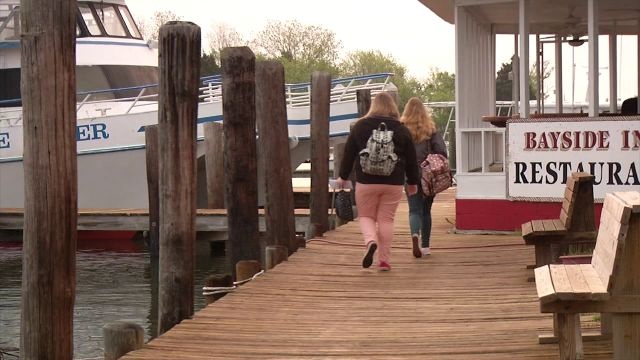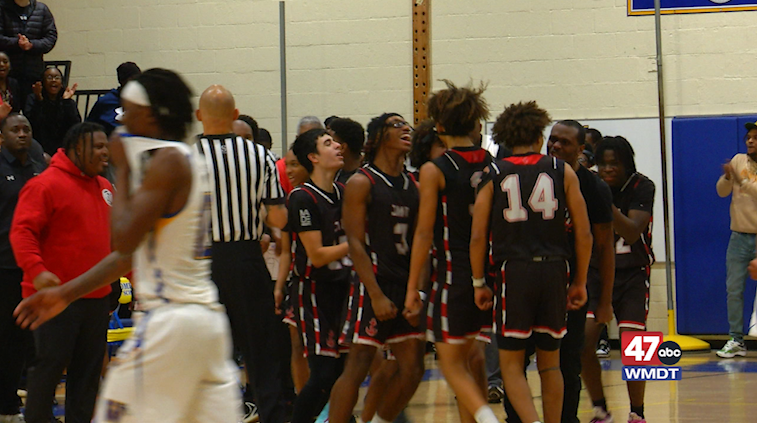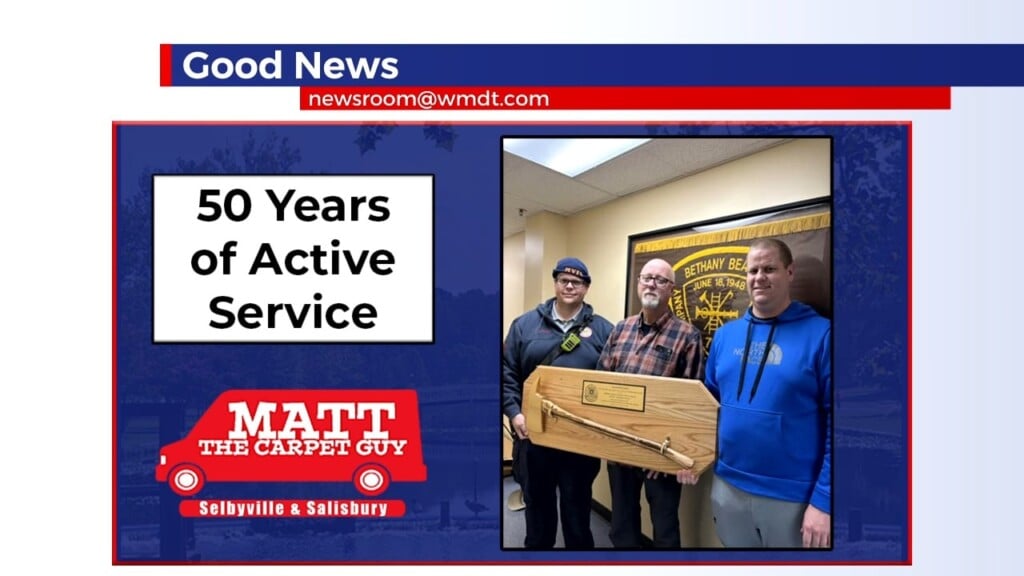Smith Island Students, Part One: The ride over

For most kids going to school involves catching the bus or a short walk, but what happens when you have roughly 10 miles of water separating you from the school… well, you boat. That’s the reality that the students of Smith Island, Md. face every day from the time they enter eighth grade to the time they graduate high school.
At 5:45 a.m. when most are still sleeping, Smith Island student are already on their way to the school boat, the Chelsea Lane Tyler. A catamaran that shuttles the students from Smith Island to Crisfield, Md. where they attend eight grade and high school
“It completely blew my mind,” said Anna Breeland, a teacher at Crisfield Academy and High School where the students attend. “It still does, every time I tell somebody that I work in a county where kids have to take boats to get to school people just don’t believe me.”
For many, like Breeland, the labor of taking a boat to and from school is something mind-blowing. However for students like 16-year-old Ashley Tyler, whose dad rode the school boat and his dad before him, this is just a way of life.
In fact Tyler said it’s the only thing that separates the Smith Island students from the rest of Somerset County.
“I mean I don’t think it’s different,” Tyler said. “I just ride the boat that’s the only thing different.”
Although it may not be different in Tyler’s mind. That doesn’t make waking up at a 5 a.m. any easier.
“It’s challenging,” Tyler said as she laughed. “It’s not very fun.”
The waking up part may be a daily challenge, but riding the boat is not.
Many kids on Smith Island grow in boats, so there is really no threat of sea sickness for most of them.
Because of that, students take advantage of the time on the boat.
“I usually just sleep during (the ride), we all have our own seats and we have our pillows and blankets on there so we just go to sleep, some people does the their work on there,” Tyler said.
For girls, make-up is usually done on the boat, minutes before arriving on the mainland with pocket mirrors wedged between the seats.
Amidst bumpy waters, eyeliner is put on with precision.
The thing that gets tricky about taking a boat to and from school every day is what happens when you need to stay after the final school bell rings.
Rebekah Kitching, now graduated, explained what students like her have to consider on a daily basis.
“If you do extra-curricular activities, like chorus or sports, you have to think about where you’re going to stay,” Kitching said. “If you don’t have your license yet you have to think about what family you’re going to stay with, how you’re going to make time for it, if you have events that you’d like your family to come over for, like stuff like that.”
The last boat back to Smith Island leaves around 5 p.m. and costs about $20.
So staying past five usually means students must spend the night in Crisfield.
That predicament has driven students like sophomore Angeline Marsh to rethink what extra-curricular activities to participate in.
“I’ve mostly avoided sports because I’d pretty much have to stay here all year for sports,” Marsh said.
Although Marsh doesn’t do sports, she does do National Honors society and chorus which take up less afterschool time than sports.
Nonetheless, they do require her to stay after school from time to time.
Marsh explained the process her family goes through every time she has to do so.
“My parents come up with me on the school boat in the morning and they go to the hotel room and like make the reservation and then afterschool they pick me up and then we head to the hotel and get ready,” Marsh said.
Of course not all students let the boat ride stop them from playing sports.
In fact Marsh’s brother, Myles, played basketball for Crisfield High, spending nights away from home with another family, the Bozman’s
.
Gregory Bozman is the athletic director at Crisfield High School, his son and Myles played on the team together.
“He was just my son, you know, so he stayed with us, he had full reign of the house and it was pretty neat cause him and my son were real close friends also,” Bozman said.
Bozman said that’s pretty much routine for all Smith Island athletes, that they either stay with someone local and that finding a family to take them in isn’t hard to do at all.
“Those young ladies and men on Smith Island they’ll have a place to stay if need be for sports or dances or whatever,” Bozman said.
However for a Smith Island student, making it over to Crisfield is not always guaranteed, sometimes Mother Nature says no.
A frozen Tangier sound, choppy water, or too much fog means the boat can’t run.
Capt. Tyler of the Chelsea Lane makes the call on whether the Tangier sound is safe to cross.
It’s a call students like Tyler, have learned to look for during the early morning hours.
“I usually know, cause who else is going to call at five in the morning,” Tyler said laughing.
Tyler said the time missed from school is excused; however the work must be made up.
“It sucks making up the work that you missed cause sometimes, I remember like one year it was so bad that we missed like a whole week, it was bad,” Tyler said.
Between waking up early, planning afterschool schedules and the makeup work it can be a lot for a student to handle.
The plus side is, those like Kitching say, it teaches them to problem solve.
“You learn to deal with stuff, you learn to like, if you can’t get over and you have a project due, hey you got to talk to your teacher, you go to be like ‘I need you to understand this’ and it’s just…it makes you know that you can talk to people more and it makes you more self-reliant and not just ‘oh this is going to happen’, it’s like ‘I need to make sure this happens,” Kitching said.
At the end of the day though, you ask a Smith Island student if they’re different they’ll say they’re just like everyone else.
Just instead of a bus, they ride a boat.


